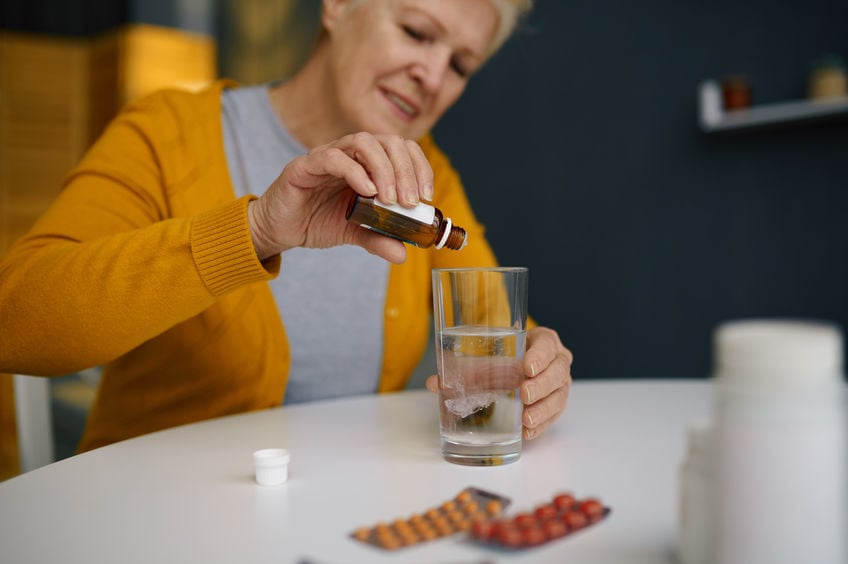Dealing With Joint Pain
Arthritis happens when the joint is inflamed or degenerated. Dealing with joint pain can affect a person’s daily activities, such as walking and sitting. Sometimes a pharmacist can help by suggesting over-the-counter (OTC) remedies, such as pain medication and supplements, to lessen symptoms.

An OTC approach to pain
The purpose of treating arthritis is to decrease pain and improve mobility. Over-the-counter pain medications for joint pain include nonsteroidal anti-inflammatory drugs (NSAIDs), analgesics, and topical treatments. Since NSAIDs target pain and inflammation, many healthcare providers consider this treatment the most useful. However, NSAIDs can also cause adverse events such as gastrointestinal bleeding, stomach upset or ulcers, and allergic reactions. Taking the lowest effective dose for the shortest duration is always a good principle to keep in mind.
Treating pain topically
Medications that can be applied to the skin are known as topical treatments. When applied to areas where arthritis is present, pain can be reduced. Different active ingredients are used in topical treatments, and some are more effective for certain parts of the body. For example, topical NSAIDs are helpful for knee pain. Before trying out any topical treatment, consult a pharmacist or doctor for advice.
The natural route
Many people use herbs, supplements, and vitamins that are available from the pharmacy to help lessen the symptoms of arthritis. However, research is lacking on the effectiveness of these treatments. Additionally, some supplements can have harmful interactions with other OTC or prescription products, so caution should be taken when trying a new herbal remedy.
Lifestyle changes to reduce pain
There are some very easy and basic remedies that one can apply to reduce the symptoms of arthritis. Low-impact exercises, keeping a good posture, and maintaining a healthy weight can all help improve joint pain. Therapies such as cognitive behavioral therapy (CBT), relaxation techniques, yoga, and massage can also be helpful when dealing with joint pain. Quit bad habits, such as tobacco use, that can worsen the condition. Avoid high-impact exercises such as running and tennis.
The bottom line
Arthritis can’t be cured, but proper management can control the disease. A pharmacist can recommend helpful treatments to reduce joint pain. When used consistently and correctly, OTC medications and supplements may help decrease pain and inflammation.
RECENT
ARTICLES



Our Patients Say
We pride ourselves on providing exceptional customer service to our community. Here are a few things that the community is saying about us.
Convenient and quality service. Ive never had my prescriptions filled quicker and the pharmacist took the time to tell me about what I was taking.
Excellent experience! Friendly, knowledgeable staff!
I have been a customer since they opened. Julie and Hiten have both treated me with the utmost respect and have always been ready to take care if my needs with a smile




